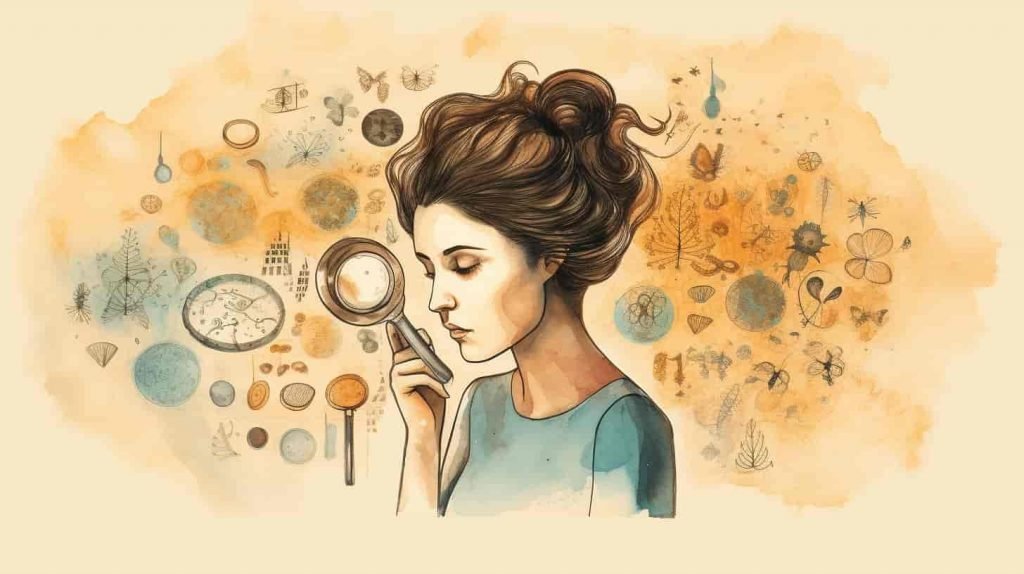Navigating the intricate web of "illnesses that cause hair loss in females" can feel like unraveling a mystery, right? This article dives deep into the relationship between myriad health concerns and their impact on women's tresses. From the silent culprits like autoimmune disorders and the unexpected repercussions of COVID-19 to the psychological stress that stealthily chips away at hair health, we're spotlighting every sneaky suspect.
But wait, there's more! Have you ever considered how hormonal roller coasters and pesky skin conditions play into this? We're pulling back the curtain on those too. With this thorough exploration, our aim is crystal clear: decode the hidden health offenders and craft a roadmap for therapies that truly hit the mark. 🎯🌱
Table of Contents

Understanding the Link Between Hair Loss and Illness
Exploring the correlation between hair loss and various illnesses, it has been observed that conditions such as autoimmune diseases, acute infections, and COVID-19 can result in alopecia, including Telogen Effluvium and Alopecia Areata.
The causes of hair loss in females often include these hidden health culprits, which may be overlooked in initial assessments. The relationship between illness and hair loss is intricate, with certain diseases triggering hair loss directly or indirectly through treatments.
Understanding female hair loss necessitates a comprehensive knowledge of these underlying illnesses. Further exploration of the link between disease and hair loss is crucial for developing preventive strategies and targeted treatments, ultimately enhancing the quality of life for affected individuals.
The Role of Autoimmune Diseases in Female Hair Loss
Autoimmune diseases significantly contribute to alopecia in the female population, which warrants comprehensive investigation. These conditions, such as lupus or thyroid disease, trigger an immune response against the body's cells, including hair follicles, leading to hair loss. Hormonal imbalances, often present in autoimmune conditions, can exacerbate this issue.
Nutritional deficiencies, common in those with celiac disease or other digestive system autoimmune disorders, can further impact hair health. Certain medications used to treat autoimmune diseases may have side effects that include hair loss. The stress factors associated with living with a chronic illness can induce telogen effluvium, a temporary hair loss condition.
Thus, a complex interplay between autoimmune diseases, hormonal imbalances, nutritional deficiencies, medication side effects, and stress factors influences alopecia in female patients.
Polycystic Ovary Syndrome (PCOS) and Hair Loss
Polycystic Ovary Syndrome (PCOS) is frequently associated with various dermatological manifestations, including hirsutism, acne, and alopecia, the latter of which is a significant cause of distress among affected individuals.
It is postulated that the hormonal imbalances inherent in PCOS, particularly elevated levels of androgens, are key factors contributing to hair loss. These hormonal disruptions can alter the hair growth cycle, leading to thinning hair and, in some cases, alopecia.
Managing hair loss in PCOS often involves addressing the underlying hormonal imbalance. Nutritional deficiencies, often concurrent with PCOS, can exacerbate hair loss, underscoring the importance of a balanced diet.
Several treatment options for PCOS-related hair loss exist, including hormonal therapy and medications to encourage hair growth.

Impact of Thyroid Disorders on Hair Health
Thyroid disorders, both hypothyroidism and hyperthyroidism, have significant implications on hair health, often resulting in conditions such as alopecia. These disorders can disrupt the hair growth cycle, leading to hair loss.
It is important to note that thyroid disorders are more prevalent in females and significantly contribute to hair loss in females.
The relationship between autoimmune diseases and hair loss is complex, with conditions like Lupus and PCOS often associated with hair loss. Lupus, an autoimmune disease, can cause a distinct hair loss pattern, while PCOS can lead to androgenetic alopecia due to hormonal imbalance.
Addressing underlying thyroid disorders is a crucial aspect of managing hair health.
Lupus: A Hidden Culprit of Hair Loss
Lupus, characterized by its systemic inflammatory nature, often manifests cutaneous symptoms, among which alopecia is prevalent. This autoimmune disease is known to cause hair loss in many patients. The hair loss associated with lupus typically appears as a diffuse thinning or loss of hair rather than discrete bald patches.
Other autoimmune diseases, such as thyroid disorders, can also negatively impact hair health, often resulting in similar hair loss patterns. Furthermore, polycystic ovary syndrome (PCOS) and iron deficiency anemia have been linked to hair loss. The former is associated with hormonal imbalance, while the latter can deprive hair follicles of necessary nutrients, leading to hair loss.
These conditions underline the link between systemic health and hair health.
Iron Deficiency Anemia: Unraveling Its Connection With Hair Loss
Iron deficiency anemia, a common condition often linked to inadequate dietary intake of iron, frequently manifests as hair thinning or hair loss, highlighting the intricate relationship between systemic health and hair health. Understanding the mechanism involves recognizing the role of iron in producing hemoglobin, a vital component for hair growth and repair.
Symptoms typically include fatigue, paleness, and brittle nails, with diagnosis often requiring blood tests. Treatment options often involve iron supplementation and dietary alterations.
Iron deficiency anemia's impact on the hair growth cycle disrupts the anagen or growth phase, leading to hair loss. Prevention strategies primarily center on adequate iron intake through a balanced diet, potentially supported by appropriate supplements.

The Intricate Connection Between Hair Loss and Skin Conditions
Dermatological conditions, particularly those with an autoimmune component, have been strongly associated with alopecia, warranting comprehensive investigation into this multifaceted relationship. Certain scalp conditions can accelerate hair loss through inflammation and follicle damage.
Concurrently, hormonal imbalances can negatively impact hair health, disrupting the growth cycle. A key area of exploration is the connection between autoimmune diseases and hair loss, with conditions such as alopecia areata exemplifying this link.
Furthermore, nutritional deficiencies, particularly iron and vitamin D, can contribute to hair loss, underscoring the importance of a balanced diet in maintaining hair health.
Lastly, the underlying mechanisms of stress-related hair loss highlight the complex interplay between psychological factors and physiological responses in hair growth regulation.
Unveiling the Influence of Hormonal Changes on Hair Loss
Significant hormonal shifts, such as during pregnancy or menopause, can markedly influence follicles' growth cycle, leading to temporary or chronic alopecia. Hormonal imbalances, particularly excess androgens, can impede the normal process of hair growth and shedding. This is often exacerbated by nutritional deficiencies, such as insufficient protein or iron, vital for maintaining healthy hair.
Medication side effects can also contribute to hair loss, with drugs for blood pressure, diabetes, heart disease, and acne among the common culprits. Notably, postpartum shedding is standard, as hormonal levels normalize after pregnancy.
Hair loss prevention strategies typically address these underlying causes, such as balancing hormones, optimizing nutrition, and mitigating medication side effects.
Psychological Stress and Hair Loss: An Undeniable Connection
Having examined the influence of hormonal changes on hair loss, attention has now turned to the undeniable connection between psychological stress and hair loss. Stress-induced hair loss is a well-documented phenomenon, with numerous studies demonstrating a significant correlation between increased stress levels and hair loss in both males and females.
Psychological factors in hair loss include major life events, chronic illness, and persistent emotional stress. Managing hair loss from stress requires a multifaceted approach, often involving psychological interventions for hair loss, such as cognitive-behavioral therapy and stress management techniques.
Furthermore, coping with stress-related hair loss involves incorporating self-care strategies and, in some cases, medical treatment. This complex interplay between stress and hair loss underscores the importance of holistic treatment strategies.
Practical Strategies to Combat Hair Loss Due to Illness
Exploring effective strategies to combat hair thinning and shedding due to disease, various treatments have been investigated. These strategies aim to prevent and treat hair loss while providing coping mechanisms for affected individuals.
Nutritional supplements have improved hair growth and density, particularly those rich in biotin, vitamins A, C, D, and E, iron, zinc, and proteins.
Pharmaceutical interventions, such as minoxidil and finasteride, are commonly used for treatment. However, they may come with side effects and require medical supervision.
Coping mechanisms, including counseling and support groups, can assist in managing the psychological impact of hair loss.
Lastly, lifestyle changes like stress management, a balanced diet, and regular exercise can contribute to healthier hair growth.
Frequently Asked Questions
Can Dietary Changes Help in Managing Hair Loss Caused by Illnesses in Females?
Research indicates dietary modifications can assist in managing hair loss due to illness. Addressing nutrient deficiencies, managing food allergies, leveraging probiotic benefits, and following detox diets may improve hair health.
Are there any Specific Hairstyles or Hair Care Practices That Can Prevent or Reduce Hair Loss Related to Medical Conditions?
Adopting protective hairstyles, utilizing suitable haircare products, performing scalp massages, and managing stress can potentially mitigate hair loss related to medical conditions. However, the impact of hairstyle choice warrants further rigorous scientific investigation.
Can Medications for Other Illnesses Contribute to Hair Loss in Females?
Certain medications, including those for hormonal imbalances and autoimmune disorders, can contribute to hair loss in females. Chemotherapy impacts and stress are also significant factors. Understanding medication side effects is crucial in managing this issue.
How Does Menopause Affect Hair Loss in Women Suffering From Illnesses That Cause Hair Loss?
Menopause symptoms often include hormonal imbalances that can exacerbate hair loss in women with underlying illnesses. Treatments focus on hormonal regulation, stress management, and addressing nutritional deficiencies to promote healthy hair growth.
Are there any Alternative or Complementary Therapies Effective in Treating Hair Loss Caused by Illnesses in Females?
Alternative therapies for treating hair loss in females include herbal treatments, stress management techniques, methods for achieving hormonal balance, scalp acupuncture, and application of essential oils. Efficacy varies and requires further investigation.
References:
Alopecias in lupus erythematosus
Thyroid hormone signaling controls hair follicle stem cell function
Stress and the Hair Growth Cycle: Cortisol-Induced Hair Growth Disruption

